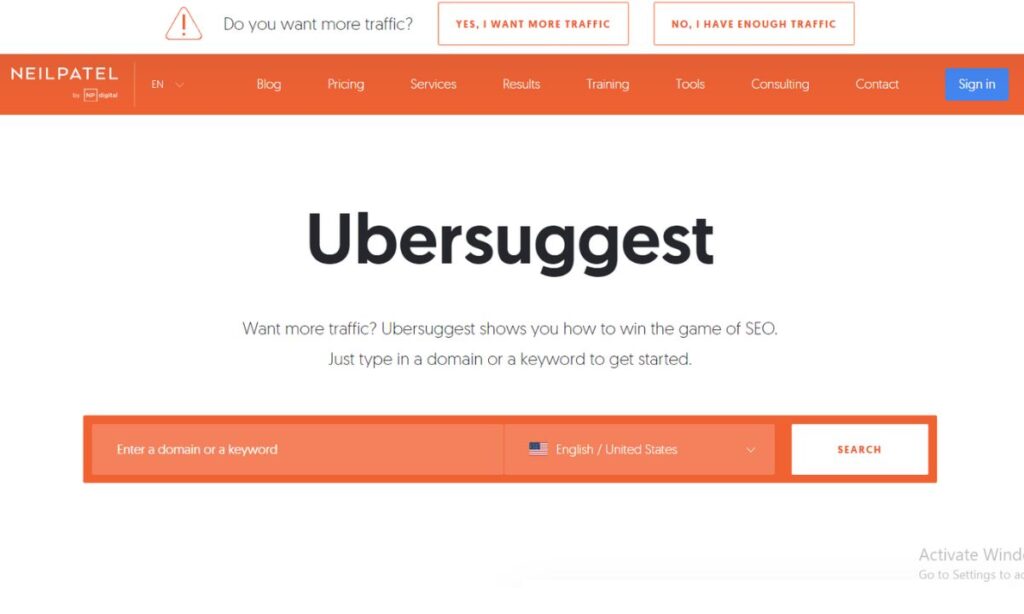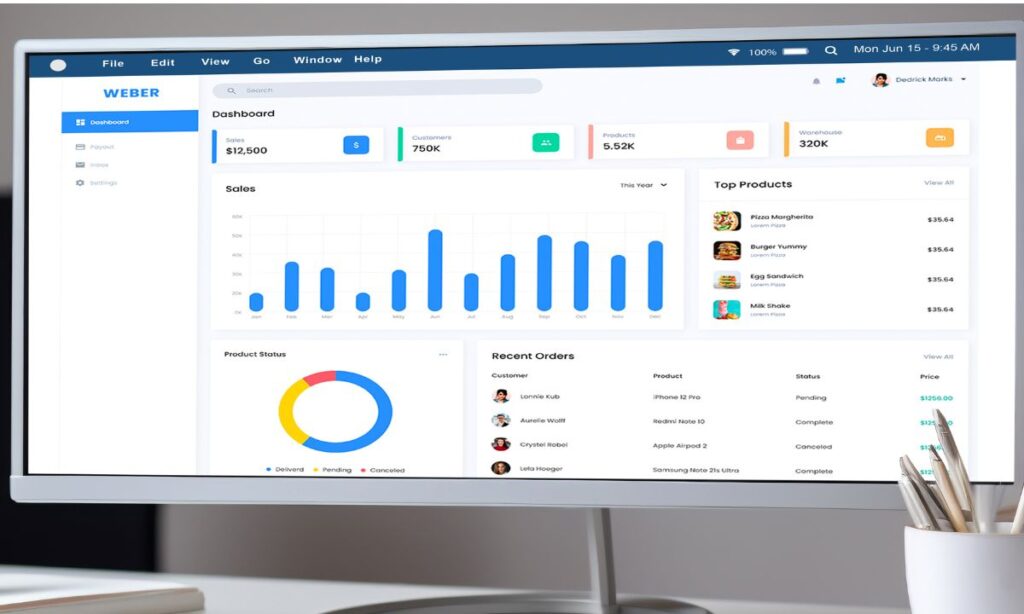In today’s digital age, we rely on search engines every day to help us find information, shop online, research topics, and even make decisions about where to eat or what movie to watch. But have you ever wondered how search engines actually work? If you’re like most people, you probably type a query into Google, Bing, or another search engine, and within seconds, you’re presented with a list of results. But behind this magic is a highly sophisticated process involving algorithms, crawling, indexing, and ranking.
This comprehensive guide will answer all your questions about how search engines operate. We’ll explore the fundamentals of how they crawl the web, index pages, and rank them based on relevance. You’ll also discover the important role of algorithms, penalties for poor optimization, and how search engines make money. Whether you’re a curious user, a budding SEO professional, or simply want to understand the process better, this guide has something for you!
What Are Search Engines and How Do They Operate?
Before diving deep into the technicalities, let’s start with the basics.
Search engines are tools that help users find information on the internet by matching their search queries with relevant content from a database. The most popular search engine, Google, handles billions of searches every day, making it the backbone of the internet for many users.
The general process works as follows:
- A user enters a search query (a question, keywords, or topic) into a search engine like Google or Bing.
- The search engine uses its algorithm to search its database and rank pages based on the relevancy to the query.
- The engine returns results, which usually include a list of web pages, images, videos, and other relevant content.
But how does the engine know what to display? It’s all about how it organizes and processes the massive amount of content available on the web.
The Fundamentals of Crawling and Indexing

What is Crawling?
Crawling is the first step in how search engines gather information from the web. Imagine a spider building a web — that’s what a crawler (also known as a spider or bot) does. Crawlers systematically browse websites by following links from one page to another.
The main goal of crawling is to discover new content. When a crawler visits a page, it collects information like:
- Text content (the written words)
- Images and videos
- Internal links (links pointing to other pages within the same site)
- External links (links leading to other websites)
- Metadata (descriptions, keywords, etc.)
The process is continuous because the web is always changing. New websites and pages are being created, and existing content is updated. Crawlers work tirelessly to make sure the search engine has the latest content in its database.
What is Indexing?
Once a crawler has visited a webpage, it then indexes the content. Think of indexing as organizing a library. When a webpage is indexed, its content is stored in a database, and the search engine creates a record of it. This indexed content can then be quickly retrieved when users search for relevant topics.
The search engine creates a database that includes:
- Keywords found on the page
- How fresh or updated the content is
- The quality of the content (relevant, authoritative, etc.)
- Links pointing to the page (both internal and external)
Search engines continuously crawl and index the web, updating their records to ensure that the results provided to users are fresh and accurate.
How Does a Search Engine Rank Results?
So, now that we know how search engines crawl and index content, the big question is: How does a search engine decide which pages to show at the top of the results?
The Role of Algorithms
The answer lies in the search engine algorithm, a set of rules and processes that decide how content is ranked in response to a user’s query. It’s like a secret recipe that considers dozens (or even hundreds) of factors to determine which pages are the most relevant to the query.
The aim of a search engine algorithm is simple: to provide the user with the best, most relevant results. The algorithm looks at various elements, including:
- Relevance: Does the page contain information that matches the user’s search intent?
- Quality: Is the page authoritative and trustworthy? Are the sources credible?
- User Experience: Is the page easy to navigate? Does it load quickly and display correctly on all devices?
- Freshness: Is the content up-to-date and current?
- Links: How many quality sites link to the page? Links from reputable sources are a sign of authority.
These factors, among many others, are evaluated by the algorithm to rank pages from most to least relevant. The result? A search engine returns a list of pages, with the most relevant appearing at the top.
Ranking Signals
There are many ranking signals that influence how a page is ranked:
- On-page factors: Keywords, content quality, and user experience.
- Off-page factors: Links, social signals, and brand reputation.
- Technical SEO factors: Site speed, mobile-friendliness, and structured data.
Google, for example, uses a combination of over 200 different ranking signals to decide where each page should appear. The challenge for website owners and SEO professionals is to figure out how to optimize their sites for these signals.
Penalties: What Happens If Your Site Breaks the Rules?
While the search engine algorithm works to surface the best content, it also works to penalize websites that break the rules. These penalties can significantly hurt a site’s ranking and visibility.
Search engines are keen to provide high-quality, trustworthy results. If a website uses tactics that violate their guidelines (like keyword stuffing, buying links, or using hidden text), the site may receive a penalty. This means that the website’s ranking could drop or, in extreme cases, the page could be completely removed from the index.
Common reasons for penalties include:
- Black-hat SEO practices: Using manipulative techniques to trick the search engine.
- Duplicate content: A site copies content from other pages without providing unique value.
- Thin content: Pages with little or no useful information.
Google’s penalty system aims to keep the search results as valuable and trustworthy as possible. So, following the rules is crucial for maintaining a high ranking.
How Do Search Engines Make Money?
Most search engines, including Google, make money through advertising. Here’s how:
- Paid Search Ads (PPC): When users search for something, search engines display paid advertisements alongside organic results. Advertisers pay to have their website shown for specific keywords. Each time someone clicks on one of these ads, the advertiser pays the search engine a fee (cost-per-click or CPC).
- Display Ads: These are banner or image ads shown on websites that are part of the search engine’s ad network. Google, for example, operates Google Ads, where businesses can buy ad space on millions of websites.
- Affiliate Marketing: Some search engines, especially in the e-commerce space, may also earn money through affiliate marketing, where they earn a commission for referring customers to other businesses.
While these ads are a significant source of revenue, search engines also earn money through partnerships, product integrations, and other services.
Conclusion: Search Engines Are More Than Just a Search Bar
As you can see, search engines are incredibly complex systems that rely on multiple processes to deliver relevant, quality content to users. From crawling and indexing to ranking and penalties, a lot is happening behind the scenes to ensure that you get the best results.
Whether you’re just browsing the web or trying to optimize your website for better visibility, understanding how search engines operate can help you make the most of the internet. The next time you type a query into Google, you’ll know exactly how that information makes its way to the top of the search results.
So, next time you think about search engines, remember: it’s not magic — it’s a combination of technology, algorithms, and good old-fashioned optimization that makes it all possible.
Happy searching!
Frequently Asked Questions (FAQs)
1. What is a search engine? A search engine is an online tool that helps users find information on the internet. It works by indexing web pages and ranking them based on relevance to a user’s query. Popular search engines include Google, Bing, and Yahoo.
2. How do search engines know what to show in their results? Search engines use complex algorithms to determine which pages are most relevant to a user’s search query. These algorithms consider factors like keywords, content quality, backlinks, user experience, and freshness of the content to rank pages.
3. What is crawling in search engine terms? Crawling is the process where search engines send bots (called crawlers or spiders) to explore the web. These bots follow links from one page to another, gathering information about the content on each site.
4. What does it mean to index a webpage? Indexing is when a search engine stores and organizes the content of a webpage in its database after crawling. The indexed content can then be retrieved when users search for relevant topics.
5. What is a search engine algorithm? A search engine algorithm is a set of rules that determines how web pages are ranked in the search engine results. The algorithm evaluates multiple factors like the relevance of content, site authority, backlinks, and user experience to determine which pages are shown first.
6. What factors influence how search results are ranked? There are many factors that influence search rankings, including:
- Content relevance and quality
- Backlinks from reputable websites
- Site speed and mobile-friendliness
- User experience and ease of navigation
- The freshness of content
- The number of internal and external links
7. How can I improve my website’s ranking in search engines? To improve your website’s ranking, focus on creating high-quality, relevant content that addresses user intent. Use proper keyword optimization, build backlinks from authoritative websites, and ensure your site is technically sound (e.g., fast loading, mobile-friendly, easy to navigate).
8. What are search engine penalties? Penalties are actions taken by search engines against websites that violate their guidelines. These penalties can result in lower rankings or complete removal from the search engine’s index. Common reasons for penalties include using black-hat SEO tactics, publishing duplicate content, and engaging in link manipulation.
9. How do search engines make money? Search engines primarily make money through advertising. This includes:
- Paid search ads (e.g., Google Ads), where advertisers pay each time a user clicks on an ad.
- Display ads, which are shown on websites that are part of the search engine’s ad network.
- Affiliate marketing, where search engines earn commissions for referring users to other websites.
10. Why is my website not appearing in search results? There are several reasons why your website may not be showing up in search results, including:
- Your site hasn’t been crawled and indexed yet.
- Your site may have been penalized for violating search engine guidelines.
- Your content is not optimized for relevant keywords.
- Technical issues like slow page load times or poor mobile optimization.

Welcome to Digital Profit Track, sharing insights on digital marketing, freelancing, and online earning.
Contact me at: team@digitalwsf.com




